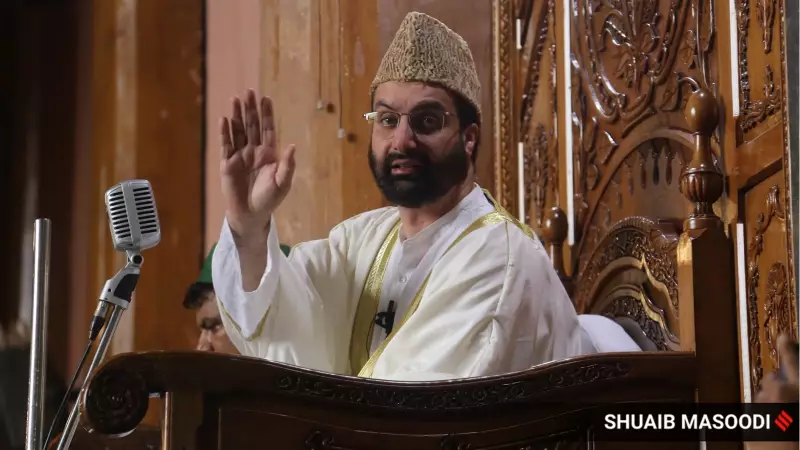
Kashmir's Chief Cleric Strongly Condemns Delhi Blast Incident
In a significant address during Friday prayers at Srinagar's historic Jamia Masjid, Mirwaiz Umar Farooq, Kashmir's chief cleric, delivered a powerful condemnation of the recent explosion near Delhi's Red Fort. The religious leader described the incident as a profound tragedy that no religious doctrine could possibly justify.
Warning Against Premature Judgments and Community Targeting
The Mirwaiz expressed deep concern about how such tragic events are often exploited before all factual details are properly established. He emphasized that this hasty response feeds into dangerous narratives that immediately associate such incidents with specific religions or communities, leading to their collective criminalization.
"Such tragedies are exploited even before facts are established," Mirwaiz stated during his sermon on November 15, 2025. He warned that this pattern creates widespread fear among Kashmiri students studying across India and generates significant anxiety within the local population of Jammu and Kashmir.
Kashmir's Historical Perspective on Violence
Mirwaiz Umar Farooq made it unequivocally clear that he, along with all political and religious organizations he represents, has consistently condemned acts of violence and terrorism. He highlighted the unique position of Kashmiri people in understanding the pain caused by such incidents.
"The people of Kashmir are the first to empathize with victims when such incidents occur, as they understand the pain caused by such incidents from their own experience of decades," he explained with emotional resonance.
The chief cleric delivered a powerful moral statement: "What happened in Delhi — no cause, however right — can justify it. No religion can permit it." This unambiguous condemnation formed the cornerstone of his address to the Friday congregation.
Advocacy for Dialogue and Constitutional Rights
Reiterating his longstanding position, Mirwaiz emphasized that dialogue remains the most effective approach for resolving complex issues and building sustainable bridges between communities. He framed this advocacy as part of his religious responsibility stemming from the pulpit of Jamia Masjid.
"I have repeatedly said that the pulpit of Jamia Masjid places upon me the responsibility of speaking for the people. And the people of Kashmir are distressed," he stated, giving voice to regional concerns.
The religious leader pointed to specific grievances, noting that while larger political issues remain unaddressed, even the autonomy constitutionally granted by the Government of India to Jammu and Kashmir was revoked in August 2019. He expressed concern that this move resulted in the loss of land and job rights for local residents.
In his concluding remarks, Mirwaiz made a direct appeal to authorities to "seriously relook" their approach toward dealing with the people of Jammu and Kashmir. He urged moving beyond exclusively security-focused and law-and-order perspectives toward more comprehensive engagement strategies.





